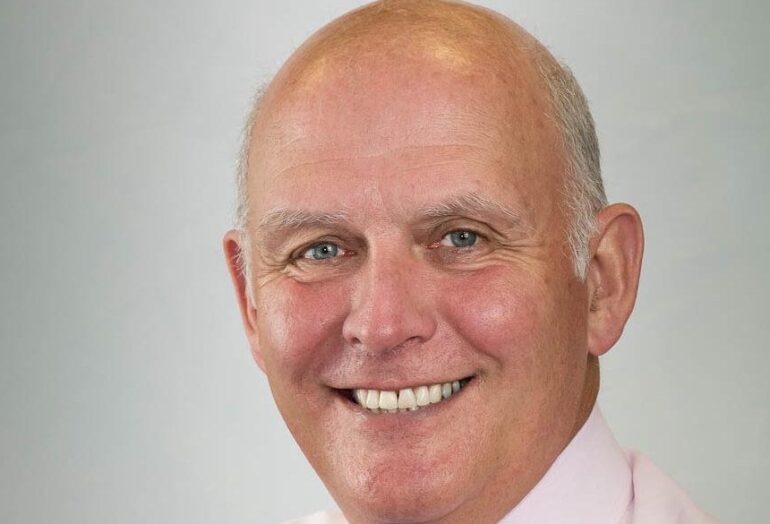Jean-Baptiste Colbert, Louis XIV of France’s Finance Minister, followed a wonderfully vivid rule of thumb when it came to balancing the nation’s books.
According to him: “The art of taxation consists in so plucking the goose as to obtain the largest possible amount of feathers with the smallest possible amount of hissing.”
As someone who read PPE at Oxford, it’s not inconceivable that the Chancellor would have been familiar with or even drew inspiration from Colbert when drafting her recent Budget.
There’s a lot to unpack in her first fiscal statement. But, of course, the measure that interests those working in the buy-to-let (BTL) sector most is the hike to the Stamp Duty surcharge on second homes.
Unfortunately, the reaction in the media on this was grimly predictable. ‘This really is the end of BTL’, they howled.
Let’s not forget that these are the same people who have foretold the demise of the market many times before, and have been badly wrong every time.
However, it’s worth spending a moment unpicking the Chancellor’s rationale for hitting landlords with higher rates.
Rachel Reeves claims that hiking the Stamp Duty surcharge to 5% will result in an additional 130,000 residential transactions over the next five years.
There are several points to make about this statement. The 130,000 figure comes from the Office for Budget Responsibility (OBR) and is based on assumptions about the expected behavioural responses to the increased levy.
In other words, it’s a guess. Without more detail on those assumptions, it’s difficult to scrutinise. The OBR itself admits that its estimates “may differ materially” from what transpires long-term.
Second, I fear the Chancellor has fallen into the trap as many a politician before her: the belief that first-time buyers are fishing in the same pond as landlords.
In my experience, first-time buyers are not in the market for three- and four-bedroom houses, houses in multiple occupation (HMOs) or holiday lets; they are after one or two-bed flats and starter homes.
Third, Reeves will be fully aware that, to date, the 3% surcharge introduced by George Osbourne in 2016 failed to quell landlord investment, as intended. In fact, between 2016 and 2022, before interest rates started rising, the buy-to-let market grew by 39%.
But I believe, deep down, the Chancellor knows this policy won’t make much difference in terms of deterring further investment from landlords.
Why?
For a start, an additional 130,000 residential transactions only equates to 26,000 a year over the next five years
That’s a drop in the ocean when you consider there were more than one million transactions in 2023-24 – and this was a quiet year, with the lowest number of transactions in 11 years.
Second, the Treasury’s own cost-benefit analysis reveals it expects tax receipts from landlords to increase.
In fact, it expects the Stamp Duty tax take from landlords to increase in five out of the next six financial years. By 2029-30, it expects to be raking in an additional £310m a year from landlords.
Even accounting for the increased revenue pulled in from hiking the levy, one would expect the tax take to decrease – or at least remain flat – if the Treasury genuinely believed this move would actually deter landlords from adding to their portfolios.
I expect what will happen is that BTL purchase transactions will take a hit over the next 12 months, while landlords find their feet. This is what happened in 2016-17, when the initial 3% surcharge was first introduced.
Longer-term, though, landlords will either recoup their costs by negotiating harder on price with vendors or they will pass the additional costs on to tenants in the form of higher rents. I’m sure the latter is not something that the Chancellor would want to see.
Far from being the death of the market, long-term this tax hike will prove to be a mild irritant.
Yes, it may discourage investment by smaller landlords who see buy to let as a supplement to their pensions, but professional landlords will pick up the slack. This trend is far from new; it is something that has been happening over several years. All the Chancellor has done is merely speed up the process.
My only hope is that having seen that her measure has been ineffective, the Chancellor doesn’t come back in a year or two and turn the screw further.
That would be unwise, as it would punish the millions of people who rely on the private rented sector to put a roof over their head.
For now, we can only play what is in front of us.
To butcher Colbert’s quote, the landlord has once again been plucked but in a few weeks, when the Budget becomes nothing more than an unpleasant and fading memory, you’ll barely hear the hissing.
David Whittaker is chief executive of Keystone Property Finance



